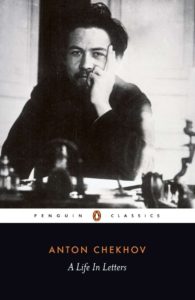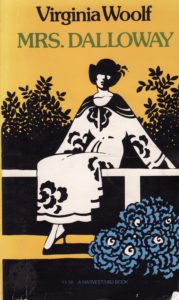
Daniel Mason’s novel The Winter Soldier is published today. He shared five books about doctors with Jane Ciabattari.

A Life in Letters, Anton Chekhov
Though there have been many physician-writers, Chekhov is, in many ways, our patron saint: so many of his works are about the practice of medicine, and he continued to practice until he became too ill. I had never read his letters until recently, and was blown away by how human, funny, irreverent and perceptive they are, in their many observations on both what it is like to be a doctor and—as he grew increasingly ill—a patient.
Jane Ciabattari: Can you give us some of your favorite examples? Of Chekhov as physician, and as patient?
Daniel Mason: There is a famous 1888 letter to his publisher and friend Alexei Suvorin, in which he declares medicine “my lawful wedded wife, and literature my mistress,” but I was struck more by less blustery moments that pop up during his travels or work as a district medical doctor: the peasants who try to pay him, the descriptions of disease among Sakhalin convicts, his examinations of friends and family. In an 1897 letter to the architect Franz Shekthel, he describes the heart sounds of their painter friend, Isaac Levitan. “Pff-tck”: as if a century later we are putting our ears to Levitan’s chest. As a patient, one of the most extraordinary ones, to me, was also written in 1897, shortly after a severe lung hemorrhage that forced Chekhov to give up his local medical practice and begin to recognize that his chronic cough represented the same disease (tuberculosis) that had killed so many of his family and friends. He is in the clinic, and has just had a visit from Tolstoy in which they discuss the afterlife: the much older, but healthier “Lev Nikolayevich” (even to hear Tolstoy referred to as such is thrilling!) takes, not surprisingly, a mystical position, imaging a kind of formless, identity-less immortality, which is utterly unconvincing to the sick Chekhov. “I don’t feel any need for immortality in this form,” he writes, in which I think it is possible to read his love of life of the body, and a protest against the body’s end.

Madame Bovary, Gustave Flaubert
The operation that Charles Bovary performs to “fix” poor Hippolyte of his club-foot, remains, for me, one of the most horrific descriptions of medical hubris I have ever read.
JC: Ironically, shortly after the operation, which she encouraged, Emma seems proud of Charles. And after the horrendous gangrene sets in, she turns back to Rodolphe. In some ways this ill-conceived operation is a plot device, interrupting the flow of Emma’s affair. How long ago did you first read this vivid description of medicine gone wrong? And it has stayed with you?
DM: I don’t remember exactly when I first read it, but it certainly has stayed with me; even now when I read the scene I find myself hoping against hope that somehow it just might turn out differently, this time. As a doctor, I find it has a corrective quality too—a warning of sorts. I would hope that I would never find myself anywhere near to carrying out the kind of malpractice Charles Bovary performs, and yet at the same time, physicians are very often called upon to provide “heroic,” transformative cures, and it can be difficult, in the face of well-meaning pressure—from families, patients, colleagues, one’s own pride—to acknowledge the limits of one’s own powers. Even after the horrible operation, Charles still doesn’t get this—his pathetic “epiphany” is to conclude that his error was due to the foot being a valgus deformity, rather than an equinus. He still can’t heed the words of Canivet, the arrogant but more experienced surgeon who comes to amputate Hippolyte’s leg: “We are not so clever, not we! … We are practitioners; we cure people, and we should not dream of operating on anyone who is in perfect health.”

Regeneration, Pat Barker
Barker’s book struck me for many reasons, but primarily for its sensitive treatment of W. H. R. Rivers, the real-life physician who cared for Siegfried Sassoon and Wilfred Owen during WWI. She paints not only the kindness he shows his patients, but also the intense doctor-patient bond, and the complex moral questions that arise during care.
JC: Barker’s use of real-life characters—the war poets Sassoon and Owen, the writer Robert Graves, and Rivers, the physician at the center of the book—puts some restrictions on her choices as a novelist. How did you react to her description of Rivers’ reaction as he watches Dr Lewis Yealland administer shocks to a mute patient in an effort to make him speak?
DM: Yealland (a true physician, whose Hysterical Disorders of Warfare inspired this scene) invites Rivers to watch with the caveat that he is not to be a “sympathetic audience.” This is a futile request. Rivers is deeply affected: at first shocked by the violence of the treatment, but then later, after a nightmare, thrust into a more complex meditation on what it means to cure patients in war-time. Here Barker captured the internal conflict of any war doctor; Rivers recognizes that curing a patient might mean sending him back to the front, in essence: to death. I have always been struck by the complexity of his meditation, his decision to interrogate his own reaction, both the emotions he feels and the images of his dream.

Mrs. Dalloway, Virginia Woolf
The sections in Mrs. Dalloway portraying Septimus Smith and his two doctors, are for me some of the most poignant portrayals of the failure of physicians to connect with a patient across the terrifying divide of psychosis. Read alongside Woolf’s non-fiction (particularly “On Being Ill” and her diaries) they serve as a reminder of the alienation of illness.
JC: What were the most egregious examples of the physicians’ treatment of Septimus Smith? Were there parallels evident in Woolf’s life, according to her diaries and letters?
DM: Septimus sees two doctors, both of whom fail to understand him. The first, Holmes, is a general practitioner. He errs both in diagnosis (to him Septimus, though hallucinating and profoundly despondent, is “just a little out of sorts”) and treatment (he prescribes golf and music hall attendance, bromides). Rezia, Septimus’ wife, then takes him to a specialist, Dr. Bradshaw—pompous, entranced by his own theories—who was modeled on one of Woolf’s doctors. It is easy to read Dr. Bradshaw’s prescription—rest, seclusion—as coercive, but, as Elaine Showalter has argued, it was one of the only options of the time (though one might hope for a more open-minded caregiver than Bradshaw), and likely indicated, given that Septimus is not only suicidal but wishes Rezia’s death as well. But by this reading, Bradshaw also errs, in failing to recognize that Septimus is far too disturbed even to be allowed to leave their consultation in his wife’s care. Ultimately then, it is possible to read this as a commentary on the tragic bind in which Septimus finds himself, and a profound cry of despair about the treatment options for severe mental illness: blithe indifference on one hand, and coercive loss of autonomy on the other, both of which we know Woolf suffered herself.

Lenz, Georg Büchner
Most caregiving does not come from doctors, and in its portrayal of a village pastor’s attempt to care for a severely mentally ill playwright, Büchner’s Lenz is a portrait of compassion and forbearance, but also the burden that illness can place on a caregiver as well.
JC: An experience of psychosis writ from inside, and the care needed to help the patient, it draws in part from the diaries of J.F. Oberlin, the pastor who cared for Lenz in 1778. What were the options for treatment at that point? And how did the pastor add to those options?
DM: Treatment at the time would have been very local; if they were medically treated at all, people with severe mental illness like Jakob Lenz might have been bled, confined in chains, treated with any number of herbs or preparations, ranging from purgatives to mercury compounds. But this was a transitional period in Europe, and many people would not have been taken to a doctor at all. In the context of chains and purgatives, Pastor Oberlin’s approach seems almost revolutionary: he houses and feeds Lenz, tries to integrate him into the village community, and talks and listens to him. There is an astounding moment, where Oberlin even shares his own hallucination-like experiences. And yet it is increasingly clear that what is happening to Lenz is far more pathological, and in the end even Oberlin’s steady kindness is not enough.
*
· Previous entries in this series ·
If you buy books linked on our site, Lit Hub may earn a commission from Bookshop.org, whose fees support independent bookstores.

